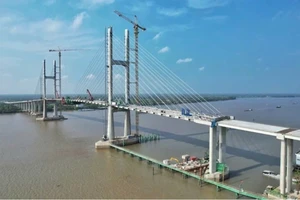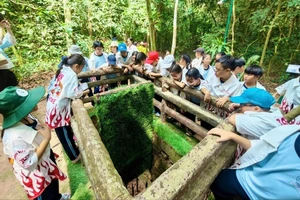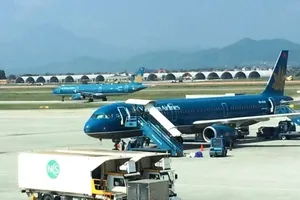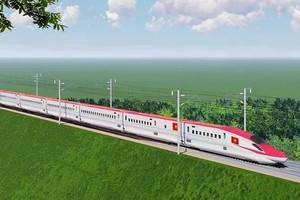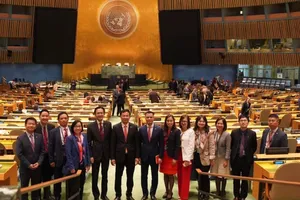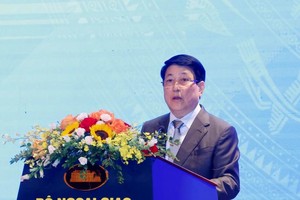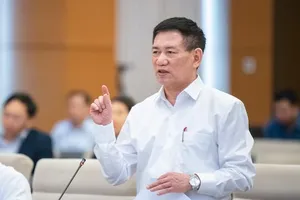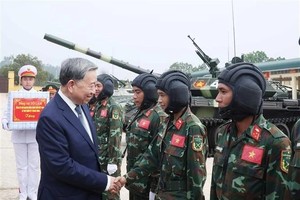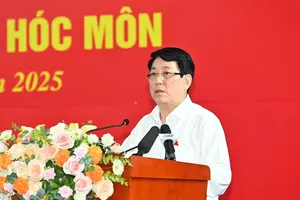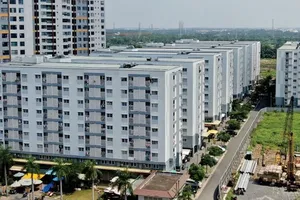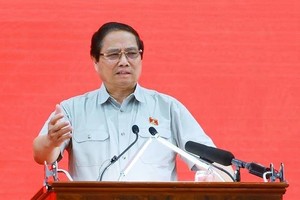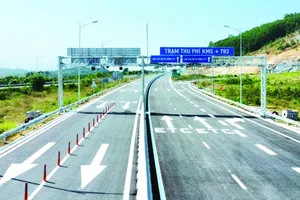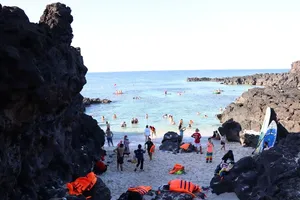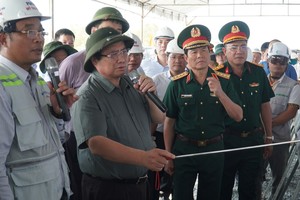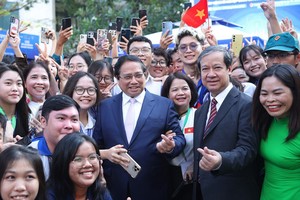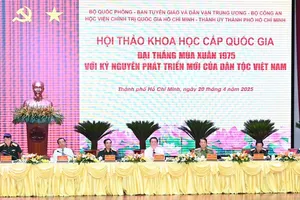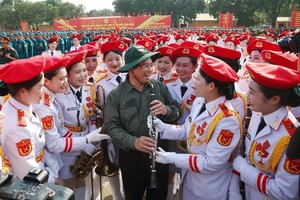Deputy Prime Minister and Foreign Minister Pham Binh Minh has called for US support for water, energy and food issues in the Mekong Delta, while seeking effective measures to cope with climate change.
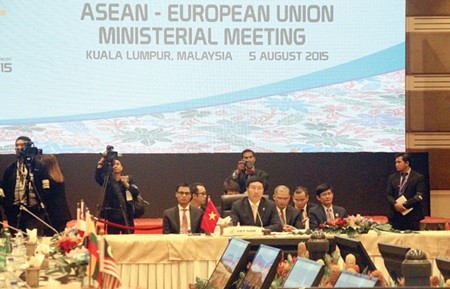
He made the statement during the eighth Lower Mekong Initiative (LMI) Ministerial Meeting in Kuala Lumpur, Malaysia yesterday, chaired by US Secretary of State John Kerry.
Highlighting the need for co-operation in sustainable development with balanced relations among water, energy, food, infrastructure and the environment, the Deputy PM said that in the next five years, the LMI should focus on building smart and high quality infrastructure.
He said the LMI should encourage US investment and the transfer of technology and technical solutions to solve environmental challenges as well as balance socio-economic development in the sub-region.
Minh recommended supplementing projects proposed by Mekong countries with a number of projects to support Viet Nam's Mekong Delta localities, including Ben Tre, Soc Trang and Tra Vinh, in response to salt intrusion and drought.
During the event, which gathered foreign ministers from Cambodia, Laos, Myanmar and Thailand and ASEAN Secretary General Le Luong Minh, participants also discussed ways to ensure the sustainable growth of the lower Mekong region where the need for infrastructure to serve socio-economic development is rising.
They agreed to organise the 9th LMI on the sidelines of the 49th ASEAN Foreign Ministers' Meeting in Laos in 2016. A meeting of the LMI Working Group is also scheduled to be held in Viet Nam later this year.
Chinese talks
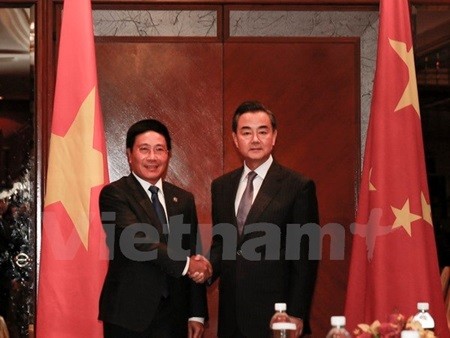
Earlier on Tuesday, Deputy PM and Foreign Minister Minh met with Chinese Foreign Minister Wang Yi on the sidelines of the AMM 48.
The two sides agreed that thanks to close directions from the two countries' leaders, relations between Viet Nam and China had seen new and positive developments.
Fruitful bilateral visits and delegation exchanges of high-ranking officials, particularly Party General Secretary Nguyen Phu Trong's visit to China and Chinese Politburo Standing Committee member and Vice Premier Zhang Gaoli reciprocal trip, had made substantial contributions to enhancing mutual understanding and co-operation between the two countries.
The FMs concurred that the maintenance and enhancement of high-level visits and meetings had significant meaning in increasing the two nations' political trust.
In that spirit, Minh and Wang exchanged ideas to prepare for and promote the upcoming visits by their top leaders.
They agreed to push collaboration between the Vietnamese and Chinese foreign ministries, promote the role of the Viet Nam-China steering committee for bilateral co-operation, and bring co-operation into play across the board with a focus on economy, trade, investment and infrastructure.
The FMs also discussed the East Sea issue.
Deputy PM Minh said that Viet Nam was deeply concerned over the expansion and building of islands that changed the status quo in the East Sea and affected the maintenance of peace and stability in the region. This was also a deep concern for other ASEAN member states, he stressed.
Minh said that China was an important partner of ASEAN, and its member nations wanted relations between the bloc and China to develop healthily. Handling East Sea issues would contribute to propelling ASEAN-China relations forward, he said.
He urged the two sides to maintain agreements and common perceptions reached by leaders of the two Parties and States on effectively controlling maritime disputes without actions to complicate or expand disputes.
It was also imperative to fully implement the Viet Nam-China Agreement on the fundamental principles guiding the settlement of sea-related issues and the Declaration on the Conduct of Parties in the East Sea (DOC) while working together with other ASEAN member states to complete a Code of Conduct in the East Sea (COC).
Minh highlighted the significance of resolving any disputes by peaceful means and in line with international law, including the 1982 United Nations Convention on the Law of the Sea (UNCLOS), and joining together to sustain a maritime environment of peace and stability.
The Chinese FM said that China was willing to increase high-level meetings between the two countries' Parties and States, while enhancing strategic exchanges to deepen their bilateral political trust and address disputes.
